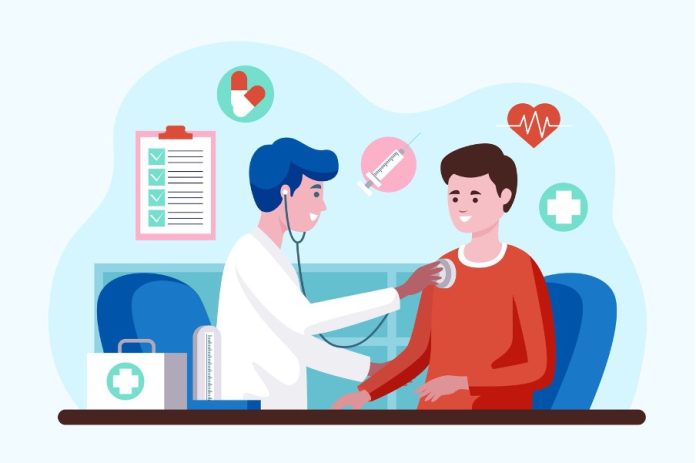Most of the patients are condemned to death for want of treatment as cost of anti-cancer drugs is unaffordable for them.
Street Talk
Expert Opinion

Some time back I came across a few master pieces of opinion articles written by some oncologists about the widespread of cancers taking heavy toll of human lives. One can understand how frightening it is and how dangerously cancer has assumed the epidemic nature at our place. It was a wonderful read to go through the suggestions dished out by some renowned doctors having immensely contributed to the field of medicine, to fight out cancer.
It was also hair-raising to come across the cancer scenario in Kashmir where the author of an article quoting ‘credible’ data mentions detection of 51,000 cancer cases in 4 years (2019-2022) in Jammu & Kashmir. The author has pushed for a serious study on cancer in Kashmir.
Another write-up while picking cancer as one of the predominant causes of mortality and morbidity in elderly people, has listed some useful guidelines to live a healthy, happy life.
Of course, fighting against cancer is not a child’s play. It needs a definite agenda to combat it effectively. However, it’s also a fact that fighting cancer to the finish bears a question mark when its increase has been epidemic in nature despite all out efforts of our medical scientists to nip the evil in the bud.
A World Health Organization report reveals that the burden of cancer is growing. In 2021, the world crossed a sobering new threshold – an estimated 20 million people were diagnosed with cancer, and 10 million died. On February 1, this year, the World Health Organization’s (WHO’s) cancer agency published data highlighting the growing burden of cancer around the world, the disproportionate impact of cancer in lower-income countries, and the urgent need to address cancer inequities.
The big picture as reported by the International Agency for Research on Cancer (IARC) reveals that new cancer cases have globally increased by 50% and cancer deaths by about 18% between 2012 and 2022. The IARC estimates that the global cancer burden will continue to rise over the next 30 years, with new cases increasing by 77% by 2050.
If we look at the epidemic nature of cancer, it’s the awareness which can serve as a shot in the arm in the fight against cancer. Programmes making people aware about the green pastures where cancer can set its foothold is the best strategy to control its epidemic nature. Precisely, in a fight against cancer, focusing on awareness programmes on a continuous basis makes sense as its uncontrolled spread in populations won’t be encouraging for a fight to the finish.
Meanwhile, there is a neglected area which has remained out of the agenda of those who are either leading or pleading a fight against cancer. Yes, the area is treatment expenses which a patient has to incur to get rid of the cancer. The treatment expenses have all along remained a cause of concern for cancer patients. Anti-cancer drugs are usually extremely costly and which makes them inaccessible and unaffordable, especially to the deprived section. Even the diagnosis of cancer comes with the burden of huge economical implications for cancer patients. Most of the cancer patients, especially from middle class and poor families, are condemned to death for want of treatment as the cost of treatment remains unaffordable for them.
A study has shown a wide variation in the prices of most of the anti-cancer drugs available in India. It has recommended that health care providers must be aware of availability of low cost brands or generics available among anti-cancer drugs and prescribe accordingly based on the economic status of the patient for successful treatment of cancers. There is an urgent need to decrease the cost of anti-cancer drugs by the government in order to save many lives due to cancer related mortality.
The current pricing model of cancer drugs bears a huge question mark as far as its affordability is concerned. We have witnessed a significant change in the treatment protocol of cancer patients due to the emergence of several innovative therapies. But the pricing of these therapies is so high that in most cases the treatment cost is higher than the annual income of the patients. And in this scenario, the patient is left with no option but to get consumed by the disease for want of treatment. It is increasingly difficult for people to pay for care.
Even as you see the cost of the medicine plainly displayed on its cover, the actual cost price of the drug remains invisible. It’s wrapped in so many layers like maximum retail price (MRP) that almost no one understands what’s really happening. The maximum retail price (MRP) printed on most of the drugs/ a healthcare article is already loaded with unbelievable margins ranging from 100 to 1000 percent!
Over the last few years, I’ve come across dozens of cancer patients struggling for want of finances and succumbing to the disease midway through the treatment protocol. There are innumerable instances when the high cost of anti-cancer drugs consumed the life of a cancer patient more than the disease itself. Every unit responsible for the pricing and distribution of anti-cancer drugs like stockists, retailers, carrying and forwarding agencies and other liaison agents are involved in the loot.
The daredevilry of the traders can be gauged from the fact that even those drugs, whose prices are ceiled as per the Drug Pricing Control Order (DPCO) decided by the National Pricing Pharmaceutical Authority, are being sold at two to ten times of the original cost whereas DPCO rules state that they cannot be sold at a profit margin of more than 16%.
Why are anti-cancer medicines so expensive at our place? An acquaintance dealing in pharma trade shared an interesting, but thought provoking point. ‘In our state contraceptives are tax free, while life-saving drugs are sleeved with multiple taxes. Thus, making the drugs costly. Notably, many states in India have exempted anti-cancer drugs from the tax net.
At our place (J&K) depressing instances galore in abundance when even a financially sound family had to sell-off their assets to meet treatment expenses. Any savings become the first casualty when it comes to availing healthcare facilities – be it diagnostic tests or purchase of medicines. Not only savings go, money is borrowed to foot the medical bills.
So, in the given modern treatment protocol, yet all cancers can be treated, and many can be prevented or cured. But what matters the most is the affordability of the treatment. The only way to help the patients afford the treatment is to make drastic cuts in taxes charged on such drugs. The state government should make anti-cancer drugs affordable by reviewing tax mechanisms. Let all life-saving drugs be made tax-free as these are more important than contraceptives.
What’s needed is that these skewed medicine price bites need special focus of the government to bring parity in costing of medicines. Otherwise, current pricing of anti-cancer drugs is only condemning patients to death. Let’s hope the government comes out with strategies that would ensure affordable healthcare costs and a well-guarded health portfolio across populations in the state.
Notably, last year in January, a parliamentary panel in its report on cancer management in the country has asked the government to provide free cancer treatment to middle-class households through a government-funded health insurance scheme and to cap cancer diagnostics and treatment services in government and private hospitals. It’s worth mentioning that cancer care players had also planned to seek tax relief on reagents & consumables required for cancer diagnostics and on some of the anti-cancer drugs from the government in the Union Budget 2023. But nothing of that sort was mentioned in the budget. lets hope the government extends such tax relief in the forth coming budget.
(The author is a veteran journalist/columnist. He is former Head of Corporate Communication & CSR and Internal Communication & Knowledge Management Departments of J&K Bank)


